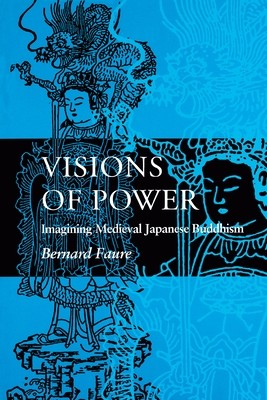
- We will send in 10–14 business days.
- Author: Bernard Faure
- Publisher: Princeton University Press
- ISBN-10: 0691029415
- ISBN-13: 9780691029412
- Format: 15.6 x 23.4 x 2.3 cm, minkšti viršeliai
- Language: English
- SAVE -10% with code: EXTRA
Reviews
Description
Bernard Faure's previous works are well known as guides to some of the more elusive aspects of the Chinese tradition of Chan Buddhism and its outgrowth, Japanese Zen. Continuing his efforts to look at Chan/Zen with a full array of postmodernist critical techniques, Faure now probes the imaginaire, or mental universe, of the Buddhist Soto Zen master Keizan Jokin (1268-1325). Although Faure's new book may be read at one level as an intellectual biography, Keizan is portrayed here less as an original thinker than as a representative of his culture and an example of the paradoxes of the Soto school. The Chan/Zen doctrine that he avowed was allegedly reasonable and demythologizing, but he lived in a psychological world that was just as imbued with the marvelous as was that of his contemporary Dante Alighieri.
Drawing on his own dreams to demonstrate that he possessed the magical authority that he felt to reside also in icons and relics, Keizan strove to use these "visions of power" to buttress his influence as a patriarch. To reveal the historical, institutional, ritual, and visionary elements in Keizan's life and thought and to compare these to Soto doctrine, Faure draws on largely neglected texts, particularly the Record of Tokoku (a chronicle that begins with Keizan's account of the origins of the first of the monasteries that he established) and the kirigami, or secret initiation documents.EXTRA 10 % discount with code: EXTRA
The promotion ends in 21d.16:46:33
The discount code is valid when purchasing from 10 €. Discounts do not stack.
- Author: Bernard Faure
- Publisher: Princeton University Press
- ISBN-10: 0691029415
- ISBN-13: 9780691029412
- Format: 15.6 x 23.4 x 2.3 cm, minkšti viršeliai
- Language: English English
Bernard Faure's previous works are well known as guides to some of the more elusive aspects of the Chinese tradition of Chan Buddhism and its outgrowth, Japanese Zen. Continuing his efforts to look at Chan/Zen with a full array of postmodernist critical techniques, Faure now probes the imaginaire, or mental universe, of the Buddhist Soto Zen master Keizan Jokin (1268-1325). Although Faure's new book may be read at one level as an intellectual biography, Keizan is portrayed here less as an original thinker than as a representative of his culture and an example of the paradoxes of the Soto school. The Chan/Zen doctrine that he avowed was allegedly reasonable and demythologizing, but he lived in a psychological world that was just as imbued with the marvelous as was that of his contemporary Dante Alighieri.
Drawing on his own dreams to demonstrate that he possessed the magical authority that he felt to reside also in icons and relics, Keizan strove to use these "visions of power" to buttress his influence as a patriarch. To reveal the historical, institutional, ritual, and visionary elements in Keizan's life and thought and to compare these to Soto doctrine, Faure draws on largely neglected texts, particularly the Record of Tokoku (a chronicle that begins with Keizan's account of the origins of the first of the monasteries that he established) and the kirigami, or secret initiation documents.

Reviews